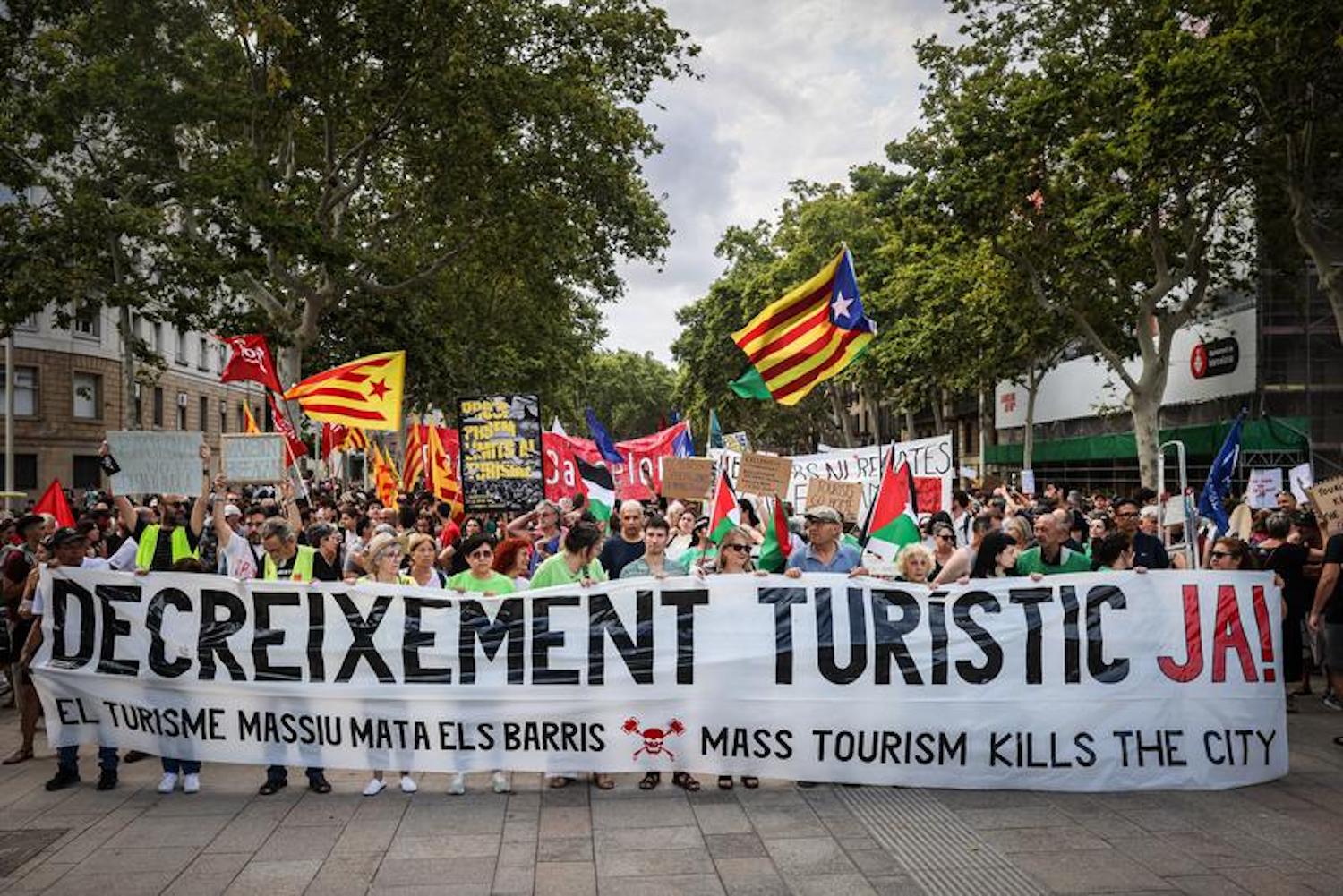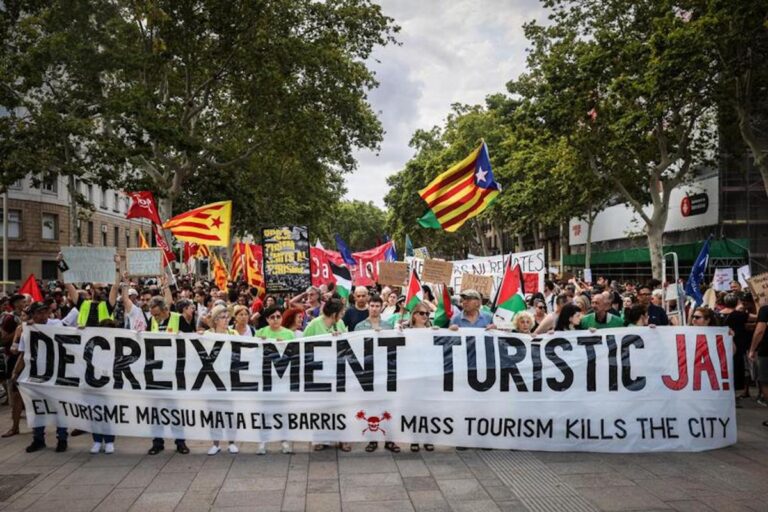Just a few weeks into Barcelona’s peak summer season, a one-sided dispute between locals and tourists has reached a boiling point.

“Mass tourism is killing cities,” read a banner at the head of Saturday’s protest.
Foreigners are flocking to Spain like sangria in the sweltering heat of mid-July. A record 85 million tourists visited the country last year, an 18.8% increase over 2022. Tourism has bolstered the Spanish economy and pushed unemployment to a 16-year low, but it has also devastated local housing markets and put longtime residents in the lurch.
Perhaps the worst affected is Barcelona, which during the summer months sees up to 4 million tourists at a time, for a population of just 1.6 million – a figure that doesn’t include commuters from the city’s outskirts, or cruise passengers, who will reach 2.2 million by 2023. With Barcelona’s hotels at an estimated 80% capacity, and the summer sun drawing foreigners to its crowded streets, residents are taking the fight to tourism into their own hands.
On Saturday, angry Barcelona residents took to the streets armed with barricade tape, cardboard signs and water pistols. Their message was simple, and set the tone for the day’s protests: “Tourists go home.”
Over the course of the hours-long demonstration, local protesters grew in strength, with police saying they numbered 2,800 and organizers saying they numbered 20,000. The march targeted tourist-heavy areas and individual tourists, who were fired with water cannons and ordered to leave the country. Hotels, street-side restaurants and other suspected tourist hotspots were cordoned off with thick tape and surrounded by protesters. A sign reading “Barcelona is not for sale” was hung from the wall of a cafe.

Besides tourists, protesters’ attention was also focused on Barcelona’s city government, currently led by Mayor Jaume Corboni. In a statement last month, Mayor Corboni said rents in the city have risen 68% over the past decade, reflecting a 38% increase in home prices. In late June, Mayor Corboni announced plans to ban short-term home rentals, a measure he believes will release 10,000 homes into the long-term housing market. Nevertheless, the law will not come into force until 2028, and “housing activists argue that the law will instead pave the way for hotel construction,” according to the NY Post.
Corboni has been discussing further solutions to balance Barcelona’s tourism influx and housing crisis, but his inaction, combined with lack of support, has led to backlash. Just weeks after being elected last year, Corboni withdrew a “strategic urban plan” for Perai Street, which aimed to increase walkable space. Predictably, protesters on Saturday carried T-shirts and signs taunting the mayor and demanding he address the ongoing crisis.
Though Barcelona’s problem is unique in scale, the tourist surge is being addressed across Spain. There’s a national consensus that, given the country’s phenomenal economic growth, tourist numbers must stay the same while home prices fall. One way to achieve that is to attract a smaller number of high-value tourists. Spain’s growing luxury industry, especially rooted in Madrid, is one way to encourage such customers and discourage those looking for cheap trips outside the province. On a smaller scale, Barcelona residents are asking travel apps to remove some transit routes from their service, a half-hearted response aimed at easing tourist overcrowding and keeping tourists at bay or insulate them.
Just weeks into Spain’s peak summer season, a one-sided conflict between locals and tourists has reached boiling point: Barcelona residents armed with squirt guns and cardboard shields and worried that wealthy tourists can hear them from their penthouse suites, are calling for war in Park Güell.
Similar
This article was featured in the InsideHook Newsletter. Sign up now!

